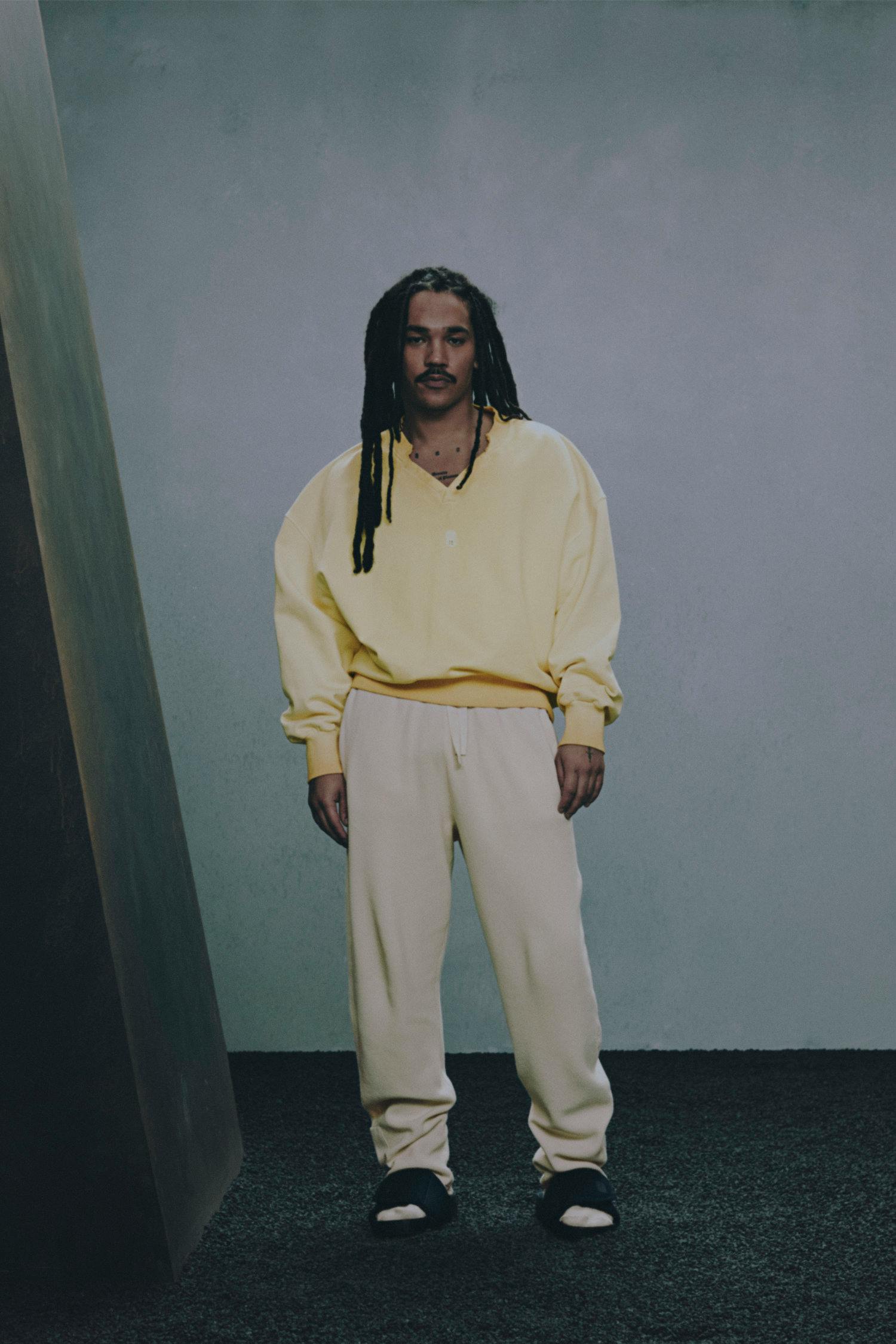Samuel Ross has not partnered with Zara for a collaboration. It’s something far deeper than that.
SR_A engineered by Zara is an ongoing multi-season venture, an entirely new line housed under the umbrella of SR_A (a multi-faceted design studio he founded in 2019).
Since exiting his previous brand A-COLD-WALL in 2023, Ross’s main outlet for fashion design has been the SR_A atelier, a venture rooted in artisanal, traditional craft.
Now, with SR_A engineered by Zara, he has a second fashion line running parallel to his atelier, although operating at a completely different scale.
At their core, the SR_A ATELIER and SR_A engineered by Zara are glaring opposites: One focuses on slow fashion while the other is a partnership with a fast fashion giant. And that tension isn’t lost on Ross.
“I believe in pure craft, alongside traditional luxury; precious materials, ateliers, and preserving artisanal ways of making. I believe equally in providing functional, emotional solutions for humanity that reach all facets of society,” Ross tells Highsnobiety via email. “I do not believe in an unclear or blurred direction that’s a mix-up of the two. We must be decisive as to why items exist.”
Functional, emotional solutions for humanity… that’s the brief for SR_A engineered by Zara. And you’re probably wondering what that looks like, in clothing form.
The first collection from SR_A engineered by Zara is an expansive one. For footwear, there are sandals, hand painted with Japanese shiso stitching, and a simple pair of runners made from vegetable-tanned leather. In the accessories department, simple bags with elongated straps, a detail reminiscent of his A-COLD-WALL days, alongside three types of headwear (caps, trucker hats, and knitted hoods). And for clothing, a refined selection of military and vintage sportswear-inspired wares.
Available from February 6, it’s a relatively timeless selection with minimal logos and boxy yet classic cuts.
SR_A engineered by Zara’s debut has the feel of a high-end, artisanal collection but at a lower price point. And as we discover from talking with Samuel Ross, that’s kind of the point.
This partnership, though it’s independent from Zara mainline, nevertheless feels like a repudiation of the stigma that surrounds fast-fashion brands. Was that a conscious decision? Are you looking to upset that narrative?
Samuel Ross: Indeed, it is a mature joint venture that will span multiple seasons, it’s not a collaboration or drop.
To my knowledge, I assume each designer has the autonomy to propose what they wish to express. My vision is to craft refined functional, emotional solutions for humanity, for all. In particular, garments suitable for leisure and respite, carrying a sense of elegance, at times a sense of concealment — moments we all live.
Inditex (the owner of Zara) is the largest public company in Spain. Their expertise enables this shared vision for humanity to move beyond simply a concept. I am focused on living ideas, not concepts. Our dynamic with Zara’s leadership team is resolute — it’s open, we speak constantly — daily. It’s based upon a specific vision of the future.
It’s equally about pricing and access, as it is about how clothes make us feel, and who gets to feel the spirit of transformation fashion embodies.
On that note, how do you square your line’s quality, material, and make with the conventional notion of trend-conscious Zara product?
SR: Strong relationships with raw material vendors and milners, have resulted in the joint venture utilizing the same fabrics as brands we perceive as luxury.
This new label appears to reflect a form of stylistic permanence, which is at odds with Zara typecasting. Is that an attractive contrast or unrelated to your focus?
SR: I have a clear vision of what we wish to express through SEASON 1.
I’m focused on what we are developing to reflect a future of our industry and consider the everyday needs of humanity through a searingly functional garment system, not only the 0.1% of society and behaviors of the past decades.
My hand and attention are present across each stage of the garment development.
The collection seems to mirror that permanence with its aesthetic direction, the neutral tones and generous cuts, which also evolves the more industrial design language that’s been associated with your practice in the past. Is this an evolution of your design language or something different entirely?
SR: You’ve captured the essence of where my mind is at, I’m fortunate to have time to think and reflect, rather than rushing into ideas.
SR_A ATELIER (retailed only with Dover Street Market) and SR_A ACCESS engineered by Zara reflect the two pillars we are building.
One rooted in craft.
One rooted in solutions for humanity.

